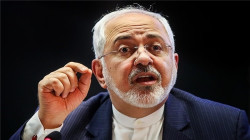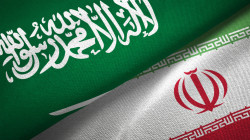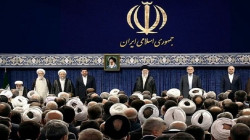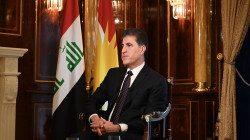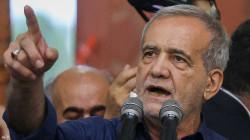Human rights groups urge new Iranian president to halt lethal force against border porters
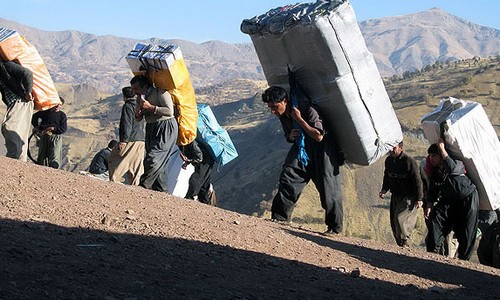
Shafaq News/ Human rights organizations on Monday called on Iranian authorities, under the new president, to stop using "excessive and lethal force" against cross-border porters, known as "kulbars," operating along the border with Iraq.
Kulbars often carry smuggled goods on their backs across Iran's borders, traversing long distances through mountainous regions into Iraq to escape the dire conditions they live in. They transport household appliances and similar merchandise restricted by Iran's stringent import regulations.
In a joint statement, Human Rights Watch and the Centre for Supporters of Human Rights (CSHR) accused Iran of using deadly force against these porters, who are predominantly from marginalized Kurdish communities.
"Marginalized Kurdish communities often turn to bringing goods over the border, legally or not, for lack of other economic opportunities,” said Nahid Naghshbandi, acting Iran researcher at Human Rights Watch.
Naqshbandi added that President-elect Masoud Pezeshkian should prioritize improving the treatment of minorities, including Kurdish border communities.
During his election campaign in Sanandaj, the capital of Iran's Kurdistan province, last month, Pezeshkian remarked, “It is shameful that our youth have to engage in kulbari [transporting goods across border] for a piece of bread. We must establish a border that facilitates trade, not kulbari.” However, just three days after Pezeshkian's election, five kulbars were shot at the Nowsud border in Kermanshah province, resulting in the death of one, according to the Kurdistan Human Rights Network (KHRN).
On July 8, 2024, Human Rights Watch released an investigation into severe abuses committed by Iranian authorities against kulbars. On the same day, Defenders of Human Rights Center issued a report examining the social, economic, legal, and rights-related factors affecting the lives of Kurdish kulbars.
The organizations stated that their reports highlight how the plight of Kurdish kulbars reflects broader systematic governmental failures in underdeveloped border areas in Iran.
Driven by poverty, kulbars face ongoing risks due to the rugged terrain they operate in and the lethal force used by Iranian security forces.
Reports from the Kurdistan Press Agency (Kurdpa) indicate that in the first half of 2024, 33 Kurdish kulbars were killed and 254 others injured, including 14 children, most of whom were shot by security forces.
Since 2011, Kurdpa has documented 2,463 cases of deaths and injuries among kulbars in Iranian Kurdish regions.
“Incoming President Pezeshkian should collaborate with the judiciary and legislative branches of the government to ensure that the pending legislation on the use of firearms prevents security forces from indiscriminately injuring and killing individuals, particularly at the border,” said Shabnam Moinipour, program director of CSHR. “It is essential that legal amendments be instituted to recognize and preserve the rights of kulbars, ensuring that perpetrators do not receive impunity.”
The human rights organizations urged Iranian authorities to "reassess its socioeconomic strategies for marginalized communities, including in predominantly Kurdish areas from where border couriers originate, and commit to upholding the rule of law. Measures should include stimulating economic growth in border areas, implementing labor protections, and ensuring robust social safety nets.”
Investing in education and vocational training is also crucial, the statement noted, to provide viable alternatives to high-risk jobs.
